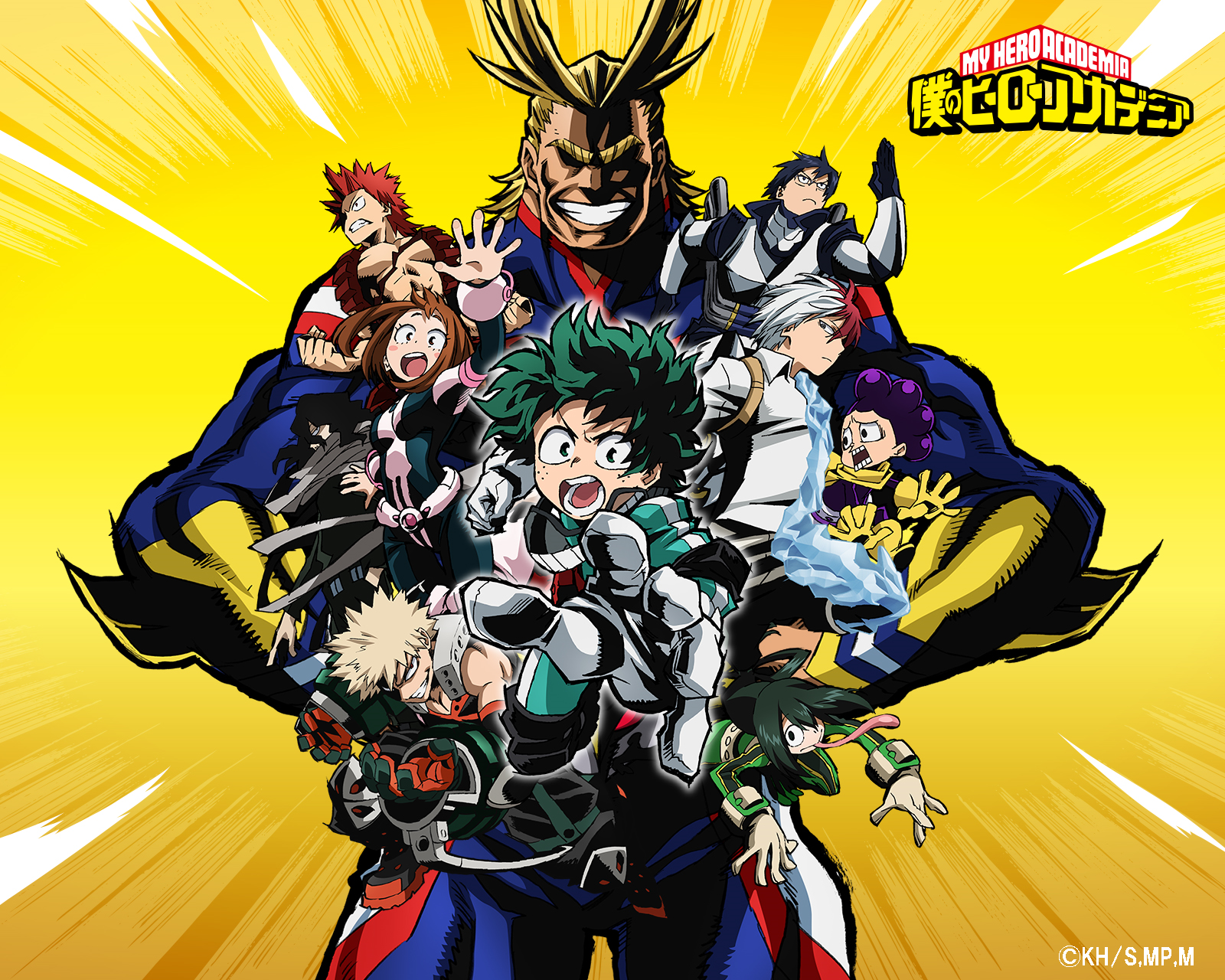“Shounen” is a term coined to describe Japanese comics and cartoons that are aimed at young men. The majority of these shows are targeted at teenage boys aged 12 to 18, and they all tend to gravitate around a common plot point: the ordinary main character becoming stronger and overcoming some seemingly impossible obstacle, and eventually unlocking his inner warrior/strength/purpose/champion.
These shows almost always center around competition- sometimes actual fighting, as in Boku No Hero Academia, and sometimes in sports, such as Haikyuu!! or Yowamushi Pedal. Sometimes it’s goofy stuff like Beyblades, or even cooking, like Shogekogu No Soma.
The idea, though, is that in each of these shows, they focus on sportsmanship and healthy competition. They don’t shy away from topics like ethics (in fact, there’s almost always a character who “bends” the rules and is frowned upon and shunned as the Bad Guy). They address things like motivations, purpose, personal development, strength, and training. And even in the case of the “Bad Guy” that nobody likes, their own motivations are usually revealed to be not entirely selfish. They also just want to win, they just don’t care what other people think of their methods (which is why nobody likes them).
I think one of the funniest things about the dialogue is when one character says “I will defeat you!” and their nemesis (usually the main character who is coming up through the ranks) says “I will defeat you, too!” It’s preposterous, but also kind of cool how their resolve allows them to each say “I will win” even when they both know one of them won’t. Maybe that’s a Japanese thing, but I like that it shows how each character honestly believes in their chances of success.
I think the best part of the Shounen I’ve read/watched, though, is how even in defeat, the characters acknowledge the victor’s strength, and instead of pouring their anger out on them, they use that as incentive to improve and defeat them in the future.
In our Western culture we’re used to the idea that if you lose, the other guy was probably cheating. We’ve got “golden boy” syndrome. When we lose, it’s never because we just weren’t strong enough. It was the Ref’s fault, or the rules are stupid, or my shoelaces were untied, or something. But in Japan, they don’t think that way. Once the result has been declared, the fight’s over- and they start preparing for the next one. There might be a few heated verbal exchanges, but more often than not, there’s a “I’ll grow stronger and beat you next time!” answered by a “I’ll get stronger and be prepared for you!”
It’s just beautiful to watch. No finger pointing, no whining, simply “I’ll improve myself and keep trying until I beat you.” There are a few assumptions on this premise, however, that I feel the need to point out. First, there’s always the assumption that the game/fight/competition is fair. Cheating, even by the “bad guys,” is frowned upon. Second, there’s a heavy emphasis on developing personal strength and mental resolve. Much of the competition’s outcome depends on the characters’ frame of mind.
Now in reality, we all know that in some things there’s limits to what we can accomplish. If I get beat in an arm-wrestling competition by a huge bodybuilder, my capacity for self-improvement probably isn’t going to bridge that gap in a reasonable length of time, if ever. My wife will never beat me in an arm-wrestling competition for the very same reason. But the fighting “can-do” spirit is something that’s severely lacking in the West, and it wasn’t always so. Seeing nerdy characters overcome adversity through hard work, mental fortitude, and determination is extremely gratifying to watch.
There are some drawbacks to stories aimed at teenage boys and young men, though- namely, the abundant fan-service and cheesecake. Even in the mildest of stories, there’s always at least one boob joke or awkward bikini shot. It gets frustrating, because the stories are good enough that it’s not really needed, and it’s just a distraction.
Even though I don’t really watch a lot of these shows (I know you’re thinking “really? You listed like ten of them!”) the themes are pretty universal. They’re fun to watch, despite the fan-service, because it’s encouraging to see the underdog rise to the top. In general, the comics (manga) are better than the animated shows, but unless you can read Japanese, you’ll need to find translations. A lot of the major series have been translated to English, and my local library even has a “manga” shelf in the young adults section. And there are plenty of fan-driven translations for books that haven’t officially been done yet.
Ultimately, though, the best part of Shounen anime is that it encourages young adults to try harder, to self-improve, and to fight fairly. It puts the blame squarely on their own shoulders, and frames competition in a healthy light, unlike most American media.

